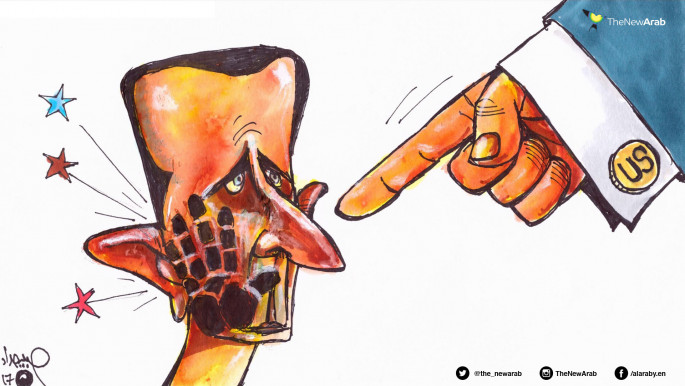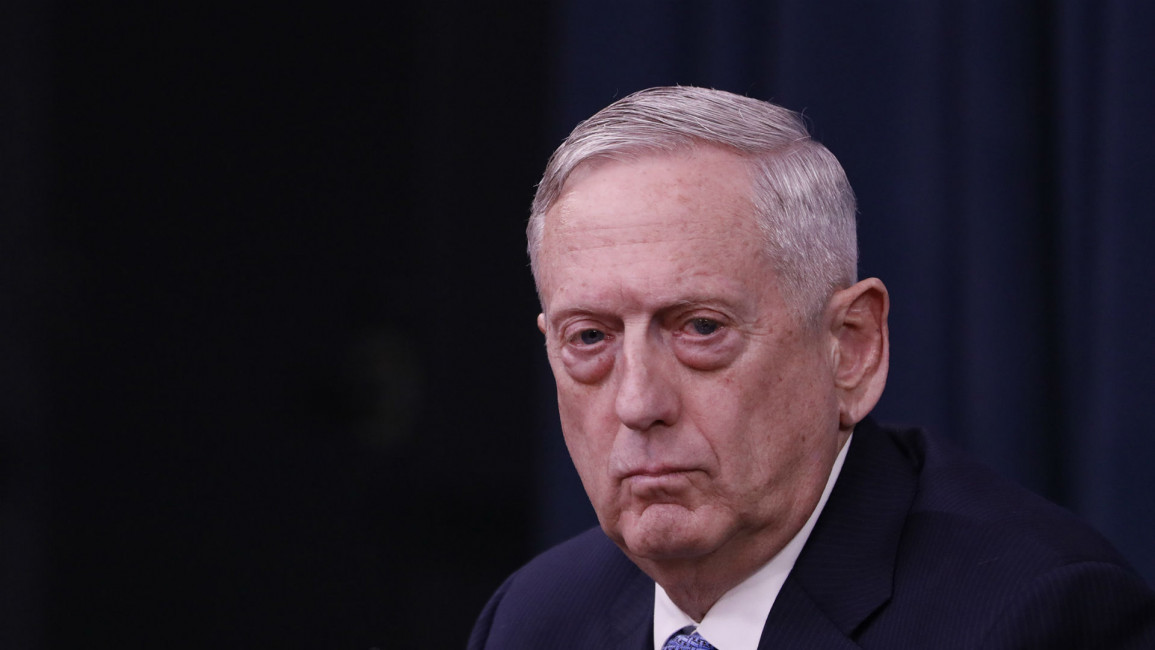US defence chief to 'clarify' strategy on Middle-East trip
US Defence Secretary Jim Mattis will use his first trip to the Middle East and Africa to focus on the battle against the Islamic State group and conveying the Trump administration's line on Syria, officials and analysts say.
His visit could provide clarity to key players about US intentions in the region, particularly in light of President Donald Trump's apparently increased willingness to use military force in Syria against the regime of President Bashar al-Assad.
Mattis arrives in the Middle East on Tuesday, where he is set to make visits to Saudi Arabia, Egypt, Qatar and Israel.
Clarity on Syria
Following the US attack on a Syrian government airbase earlier this month, many allies of the US will want to know how the Trump team intends to approach Syria.
The strike was the Pentagon's first direct military attack on Syria and resulted in a further souring of relations between Washington and Moscow, a key ally of Damascus.
"Particularly with the Saudis and the Israelis, part of the discussion will be clarifying for them what our strategy is towards Syria in light of the strike," Christine Wormuth, a former number three at the Pentagon, told Reuters.
Since launching the missile strike, however, the US has not formulated a coherent strategy on Syria, despite Trump's rhetoric on the country's embattled leader becoming harder.
 |
|
| Warning: The US airstrike on an Assad regime airbase was said to be a one-off |
While Trump criticised Russia for supporting "this animal" [Assad], US Secretary of State Rex Tillerson insisted the missile strike was a one-off attack to send a warning message after the chemical attack that killed over 80 civilians.
US officials say that Mattis is expected to renforce this line on his trip to the region.
IS on his mind
Another key area that will need addressing is how the US intends to deal with areas that are captured from the IS group in Syria and Iraq.
The US is backing forces that are battling the extremist group in their Iraqi stronghold of Mosul and in Raqqa in Syria.
Fears have risen that as IS loses territory there could be a reemergence of ethnic and sectarian strife if a plan is not put in place.
IS has lost most of its Iraqi territory that it held since 2014 and now retains about 6.8 percent of the country.
In light of the Syrian airbase strike and last week's unprecedented use of a GBU-43/B Massive Ordnance Air Blast bomb – dubbed the "Mother Of All Bombs" - in Afghanistan, allies in the region will be anxious to hear a more measured approach to balance Trump's increasingly liberal use of brute force.
Egypt, meanwhile, is expected to seek Mattis' support in fighting the IS group in the restive Sinai region, experts say.
"They would also like more American support in fighting terrorism in the Sinai peninsula and they like more American confidence that they are doing it the right way," Jon Alterman, head of Washington's Middle East program at the Center for Strategic and International Studies think tank, told Reuters.
The group have killed hundreds of Egyptian police and security forces since the overthrow of jailed presidenty Mohammad Morsi in 2013, while also launching attacks on the country's Christian minority.
Yemen
With Yemen's war having entered its third year in March, the US is also considering increasing its role by directly aiding its Gulf allies in their war against Iran-backed Houthi rebels.
According to congressional sources, Congress is about to be notified by the Trump administration about the proposed sale of precision-guided munitions to Riyadh.
 |
| Saudi Arabia has been accused of war crimes for its part in Yemen's war [AFP] |
This would mark a shift from US policy that limited support for its allies in Yemen's conflict.
"The Saudi concern is strategically Iran... The near-term Saudi concern is how they send a message to the Iranians in Yemen, and they would like full-throated American support," said Alterman.
A deepening of US involvement would come amid evidence that Tehran is assisting the Houthis with advanced weapons and military advisers. US lawmakers and international rights groups have criticised the possible move due to accusations of war crimes committed by the Saudi-led
Mattis' trip will also take in Djibouti, where the US stages its military operations in Somalia and Yemen from its military base there.
The Pentagon last week announced that dozens of US troops had been deployed to Somalia to train the country's army.
US military units in the region had also recently been granted broader authority to strike al-Qaeda linked al-Shabaab militants in the country.



